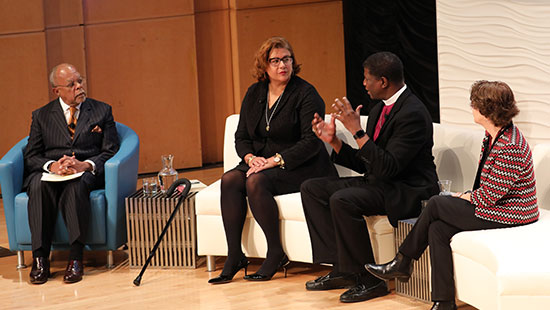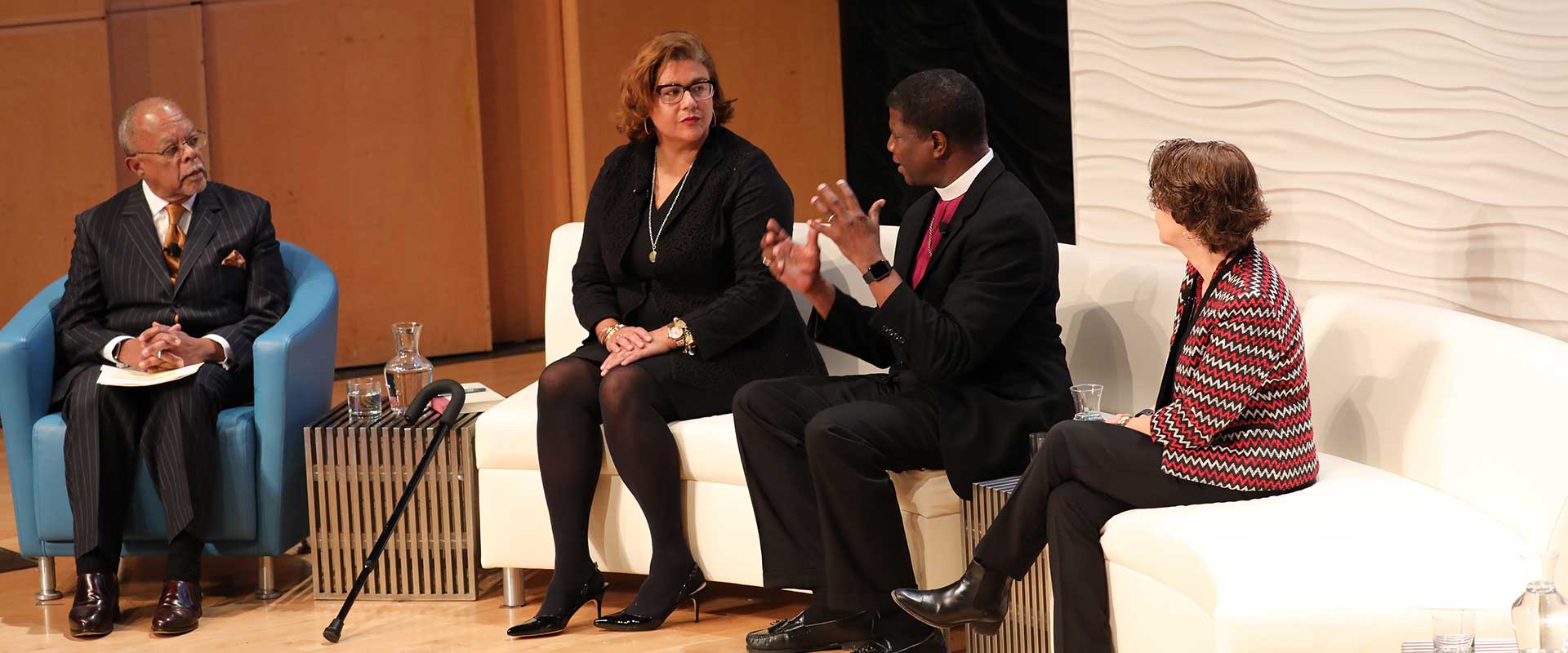
Fifty years after Dr. King’s assassination, many Americans are examining how we’ve changed for the better as a country and where we still fall short. Dr. Gates, one of the country’s most respected voices on race in America, opened our panel on this topic at NOW 2018 with a blunt question: Fifty years later, what changes would please Dr. King about America today? Our panelists each gave the country mixed grades in terms of positive change since 1968: on one hand, progress in terms of reversing segregation and elevating a generation of diverse, barrier-breaking leaders; on the other hand, persistent disparities and injustices faced by poor people of color. It is true that the percentage of African-Americans making at least $75,000 annually has more than doubled in 50 years, and those making $100,000 or more has nearly quadrupled. However, the percentage of African-Americans at or below the poverty line has not improved, nor has the unemployment rate for African-Americans overall.
Cecilia Munoz of New America mentioned a disturbing statistic about how maternal health disparities for black women have worsened: Black women are three to four times more likely to die from pregnancy-related causes as white women, according to the Centers for Disease Control and Prevention. This is not just an unacceptable disparity; it is actually worse today than it was 25 years ago.
The discussion moved from race divides to class divides—this was fitting, given Dr. King’s devotion to the related-but-distinct issues of class and race. The panelists noted that we view many problems today through a racial lens when a class-based lens may be more helpful. The xenophopia and resentment we see today are in many cases strongly connected to people who feel economically insecure—they feel like someone else is getting ahead and they are not. Discrimination, based on class or race or of any kind, distances us from Dr. King’s philosophy of the “beloved community” in which people of different backgrounds recognize that we are all interconnected and that our individual fates are inextricably linked to the fates of others.
Munoz specified that her role as a policymaker is to help expand the middle class and create economic advancement. She spoke of the benefits of bringing unlikely partners together in policy efforts; it makes it harder to demonize the other side once you start working productively with them. Dr. Alexander uses philanthropy in her role at the Andrew W. Mellon Foundation to address race and class. She described how philanthropy can provide a lever to elevate brilliant voices in arts and humanities that might otherwise not be heard. And Right Rev. Sutton, the Episcopal Bishop of Maryland, underscored how religion and religious communities can help us recognize each other’s humanity and elevate thinking from a “me” mentality focused on salvation or the afterlife to an “us” mentality focused on the here and now.
Sutton also cautioned that tallying 50 years of human achievement is complex and perhaps subjective—we are constantly as humans taking two steps forward and one step back. While it can be difficult to face our shortcomings, we can all take action today and in the future—speaking up instead of remaining a silent bystander, promoting inclusive language, being intentional about diversity and inclusion—in ways that Dr. King would view as positive change. 
The views expressed are those of Brown Advisory as of the date referenced and are subject to change at any time based on market or other conditions. These views are not intended to be and should not be relied upon as investment advice and are not intended to be a forecast of future events or a guarantee of future results. Past performance is not a guarantee of future performance and you may not get back the amount invested.
The information provided in this material is not intended to be and should not be considered to be a recommendation or suggestion to engage in or refrain from a particular course of action or to make or hold a particular investment or pursue a particular investment strategy, including whether or not to buy, sell, or hold any of the securities or asset classes mentioned. It should not be assumed that investments in such securities or asset classes have been or will be profitable. To the extent specific securities are mentioned, they have been selected by the author on an objective basis to illustrate views expressed in the commentary and do not represent all of the securities purchased, sold or recommended for advisory clients. The information contained herein has been prepared from sources believed reliable but is not guaranteed by us as to its timeliness or accuracy, and is not a complete summary or statement of all available data. This piece is intended solely for our clients and prospective clients, is for informational purposes only, and is not individually tailored for or directed to any particular client or prospective client.
